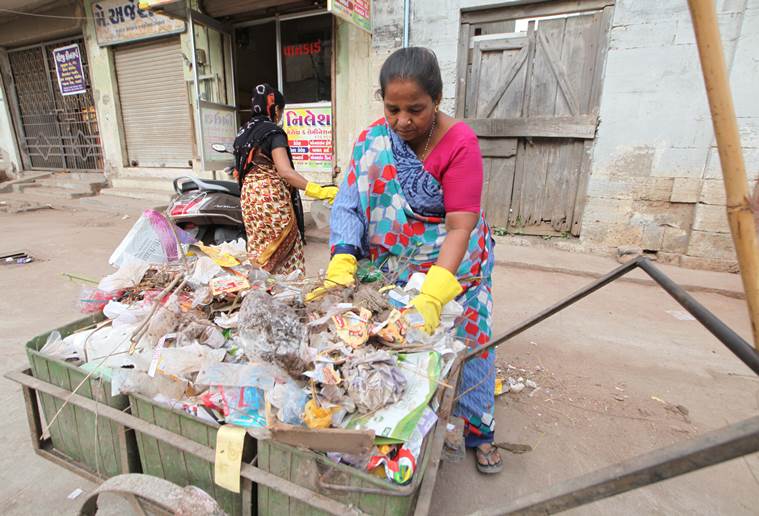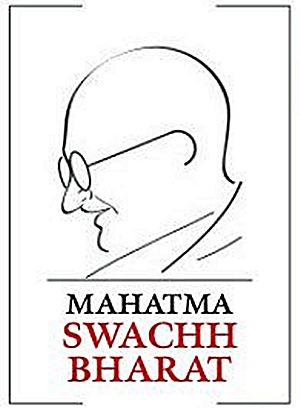Gitaben, She keeps Mahatma Gandhi’s Birthday Swach for Bharat,daily
When the breeze from the Arabian Sea brings in the smell of fish, and double-storey stone buildings with ornate roofs show up from inside Mughal-styled gateways with wooden balconies, you know you are in Porbandar, where Mohandas Karamchand Gandhi was born in 1869.
Here, dawn breaks outside the Mahatma’s ancestral haveli with the faint sound of the dholak from the Vaishnav temple next door, blending with the swish on the street from the wooden bristles of Gitaben Harkhani’s broom on Kasturba Road. “I have been sweeping this road for the last 20 years. My mother-in-law brought me here for the first time, when I was married for two years,” she says.
 With two sheets of formica doubling up as dust pans, Gitaben picks up the litter. (Express photo by Javed Raja)
With two sheets of formica doubling up as dust pans, Gitaben picks up the litter. (Express photo by Javed Raja)
Tuesday marks the 150th birth anniversary of the Mahatma. And four years of Swachh Bharat, the national cleanliness campaign that was launched in Gujarat by the state’s then chief minister Anandiben Patel at Porbandar.
Mahatma Swachh Bharat Part I | ‘I have been called a sweeper, it hurts… this is a temple, I am doing God’s work’
With two sheets of formica doubling up as dust pans, Gitaben picks up plastic pouches, styrofoam, and thin square pieces of crumpled polythene discarded by users of the popular mix of betel, lime and tobacco. Halfway down the street, municipal officers hand over yellow rubber gloves and surgical masks. “These are being distributed late today,” says Gitaben, slapping a lump of fresh dung on the plastic to keep it from flying.
The shift ends at 11 am, and Gitaben pushes the cart to a community bin at Sutharwada, a 10-minute walk from Kirtimandir. The bin, overflowing with garbage, stands between two buildings, the space packed with six-seater rickshaws. She pushes the cart to the next bin, about 50m away in the middle of a busy chowk from where a road leads to the erstwhile royal stables, a heritage monument closed to public.
Mahatma Swachh Bharat Part II | ‘I am just a safai karamchari here but this police station depends on me’
“I am proud to be a part of this safai brigade… for us, “Gandhiji is our rotlo(bread),” says Gitaben. Her husband Ravjibhai, 65, is a retired safai kamdar with the municipality and now a priest at a local temple of the Valmiki community.






